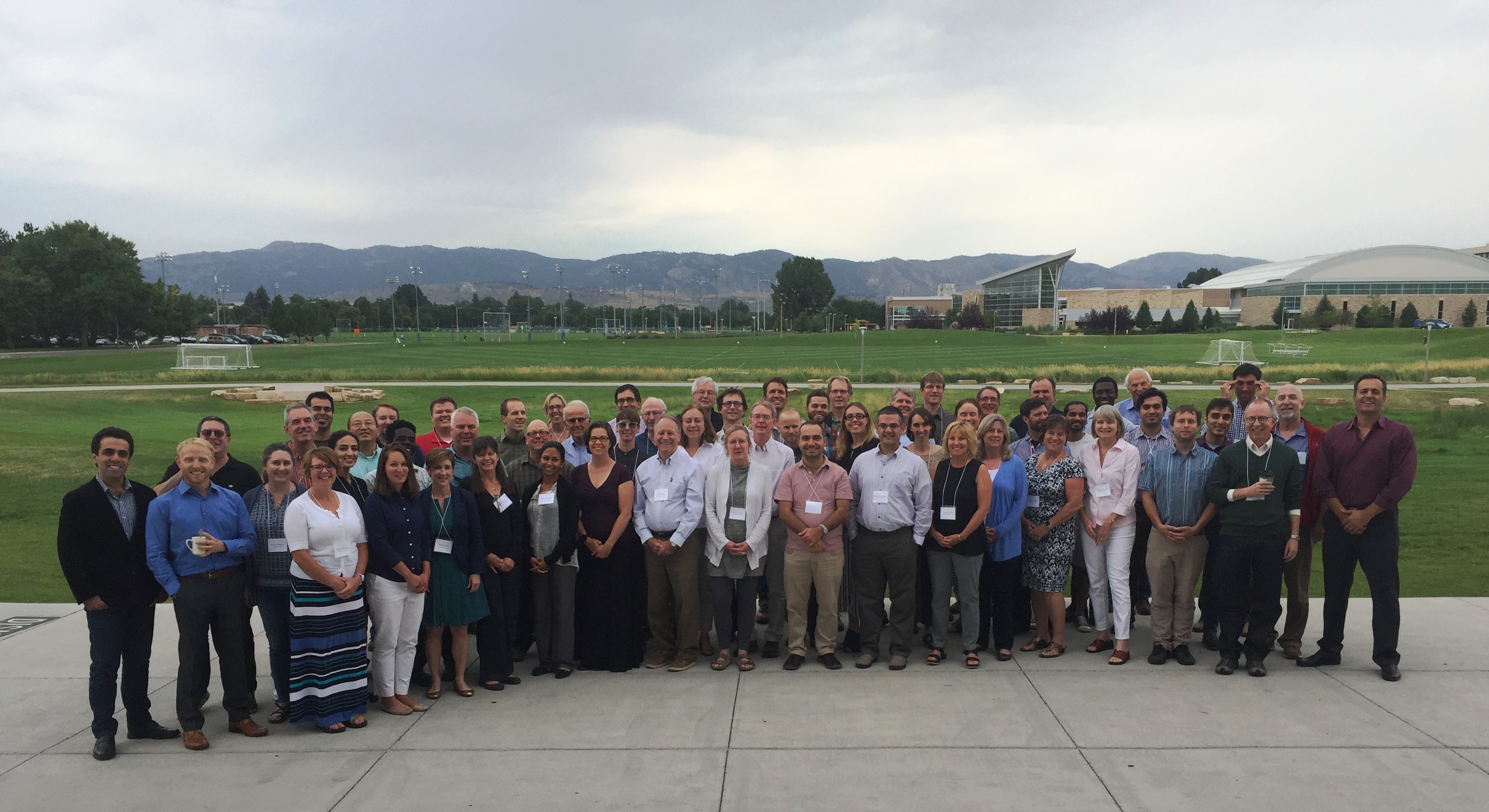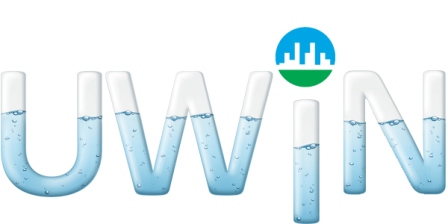The primary goal of the annual meeting is to gain a mutual understanding of our common framework and desired contributions to the urban water blueprint. The meeting took place at Colorado State University in early August. Over 70 researchers, students and staff from across the country attended the three-day meeting in Fort Collins. Learn more about the annual meeting here.
Meeting Agenda
August 3, 2016
Focus on discussion of strengths and weaknesses of Year 1 activities, re-alignment of approaches and activities
Continental Breakfast
Welcome & Introductions
Summary of Year 1 Activities
Stakeholder Engagement
Break
Undergraduate Research Program
Education Project Evaluation
Research Programs
Lunch (provided)
- UK Water Partnership Strategic Agenda
Facilitated Discussions & Workshops
- Re-alignment of activities
- Research collaboration
- Project website
- Research Notes
- Trello
- eRAMS
Day 1 Wrap-up
Activity: Group Dinner – 6:30pm
August 4, 2016
Focus on the progress of research activities and how research efforts fit into the blueprint
Continental Breakfast
Research Reports – Thrust A: Understanding the Water System
- Project A1-1: multi-scale, multi-model dynamical-probabilistic approach to quantifying vulnerability, resiliency and adaptability of US urban water systems to climatic and socio-economic variability – Jorge Ramirez, CSU
- Project A1-2: Impacts of changes in climate, demographics, and urban form on water supply-demand equilibrium, economic growth, and social equity and equal opportunity -Elizabeth Mack, MSU
- Project A2-1: Land-atmosphere-hydrosphere interactions in urban terrain – Elie Bou-Zeid, Princeton University
- Project A2-2: Land-atmosphere-hydrosphere interactions: projecting future environmental change in urban areas – Matei Georgescu, ASU
- Project A2-3: Assessing the thermal comfort implications of water-supported urban infrastructure at the human scale – David Hondula, ASU
- Project A2-4: Assessment and design of innovative building systems and urban infrastructure to mediate impacts on the urban water cycle, heat island, and regional climate – Forrest Meggers, Princeton
- Project A3-1: Continental Scale Variation in Urban Vegetation Biodiversity – Ecosystem Functioning – Darrel Jenerette, UC-Riverside
Break
Research Reports – Thrust B: Technological Solutions
- Project B1-1: Water management solutions to enhance capacity for use of alternative water sources – Sybil Sharvelle, CSU
- Project B1-2: Spatially- and temporally-informed life-cycle assessment of urban water systems – Jennifer Stokes, UC-Berkley
- Project B2-1: Comparative impact of Green Infrastructure impact across UWIN Urban Systems – Tom Meixner, UA
- Project B2-2a: Flood hydrology and rainfall frequency – Jim Smith, Princeton University
- Project B2-2b: Hydrology and hydraulics of urban floodplains – Brian Bledsoe, University of Georgia
Lunch (provided)
Research Reports – Thrust C: From knowledge to action
- C1-1: Understanding the Adoption of Sustainable Water Solutions – Adam Henry & Gary Pivo, UA
- C2-1: Using dynamic information acceleration to understand and forecast homeowner adoption of new technologies for sustainable water management – Jessica Bolson, FIU
- C3-1 SEEJ: Sustainable water solutions and social justice/equity implications – Sharon Harlan, Northeastern University
Break
Research Reports – Thrust D: Integration and Decision Making
- D1-1: UWIN Envision Modeling of Present and Future Values for Sustainable Water Management Blueprint Indicators – Roy Haggerty, OSU
- D1-2: Cross-site comparisons and contrasts across ecohydrologic regions – Mazdak Arabi, CSU
- D1-3: UWIN decision innovation system – Mazdak Arabi, CSU
Break
Discussion
Activity: Group Dinner in Old Town – 6:30 pm
August 5, 2015 (half-day)
Focus on project management & external advisory committee meeting
Continental Breakfast & Affinity Group Meetings
Project Management Plan
- Roles and Responsibilities
External Advisory Committee Meeting (separate session)
Project Management Tools
- Monthly Thrust level meetings
- Bi-weekly seminars
- Research digest notes
Break
External Advisory Committee Report
Partners and Collaborations
Final Wrap Up
Lunch (boxed meal provided)
Activity: New Belgium Brewery Sustainability Tour

